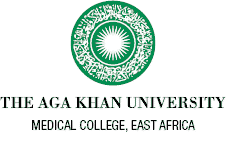Department of Biomedical Sciences
The Department of Biomedical Sciences comprises four units: Human Anatomy, Medical Biochemistry, Medical Physiology and Pharmacology. These are the Basic Medical Sciences that Medical and Nursing students must undertake before they move on to the Laboratory Medicine (Pathology) and Clinical aspects of their training.
Biomedical Sciences form part of the Phase One courses. All the courses will be taught in an integrated modular manner, especially Human Anatomy, Medical Biochemistry and Medical Physiology. This is to make it easier for learners to understand how the body functions in a way that will enhance understanding. Information delivery will be by various means: traditional face-to-face teaching, use of flipped classrooms, peer-to-peer (group) learning and lots more.
Human Anatomy will be taught by means of precepted cadaveric specimens as well as simulations and Histology sessions. There will be hands-on experiments in Medical Biochemistry and Medical Physiology to further aid understanding. Students are expected to participate and contribute to these practical sessions. Students will also be exposed early to the clinical setting through case-based learning, simulations and rotations through some of our clinical departments.
Since self-directed learning is the core of teaching at MCEA, students will therefore be expected to work on tutorial materials with guidance from the tutorial mentors.
Assessments will be “for learning” as well as “of learning”. Students will be given continuous formative assessments to assess learning and also to help enhance learning. These formative assessments will allow early detection of need for directed tutoring to ensure all students have sufficient understanding of concepts. The summative examinations are discipline-based assessing learning and will be given at the end of Year 1 as well as at the end of Phase 1; this latter assessment comes up at the end of Year 2 during which all disciplines taught in Years 1 and 2 will be examined.


